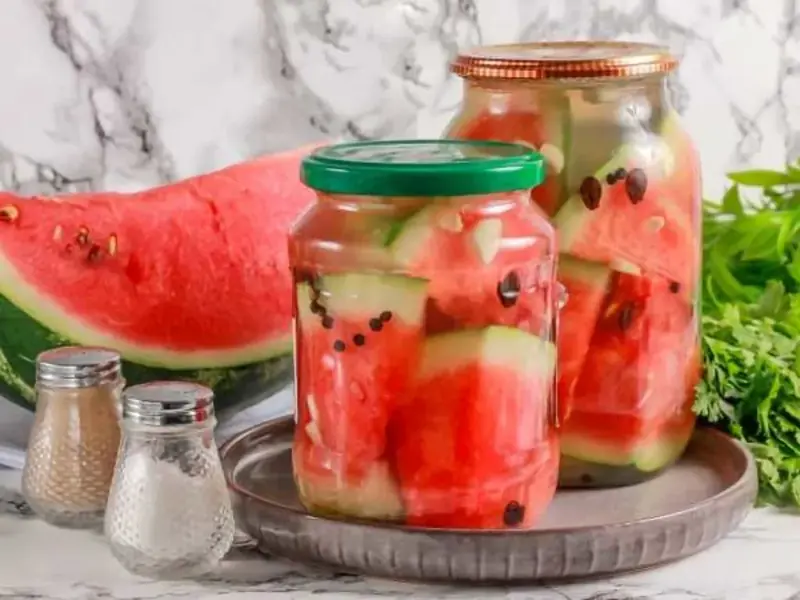
The flesh of a large, juicy watermelon contains up to 13% easily digestible sugars: fructose, sucrose, and glucose. It is known that as the fruit ripens, fructose and glucose dominate the flesh, while sucrose accumulates in the watermelon during storage. Additionally, it is a concentrate of pectin, alkali, and protein. The fruit also contains magnesium and potassium, iron and calcium, sodium and phosphorus. Watermelon is a valuable source of folic and ascorbic acids, carotene, and riboflavin, as well as niacin and thiamine. Notably, there are only 38 calories in 100 grams of the edible part of the fruit.
Ingredients (for a one-liter jar): 1 watermelon, 1 tablespoon of vinegar, 1 clove of garlic, a 2 cm piece of hot pepper, 2 sprigs of dill, 2 teaspoons of sugar, 1 teaspoon of salt.
To pickle the watermelon for winter, follow these steps. In sterilized jars, place the hot pepper with seeds, dill, and garlic. Fill the jars with watermelon flesh, add salt, sugar, and pour in the vinegar. Fill the jars with boiling water and cover them with sterilized lids.
Line the bottom of a large pot with a towel, place the jars inside, and sterilize the watermelon in the marinade for 10 minutes. Seal the lids and store the pickled watermelon in your pantry.
Life Hack
For canning, choose a whole watermelon with an undamaged rind and fresh flesh. Signs of spoilage include changes in the consistency and natural color of the flesh, a sour or bitter smell, dark spots, or mold on the rind. Be cautious of any mushiness, stickiness, or a paste-like texture in the watermelon flesh—spoiled watermelon is not suitable for pickling.
